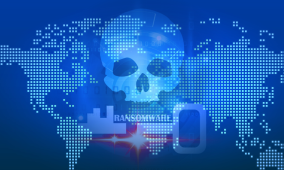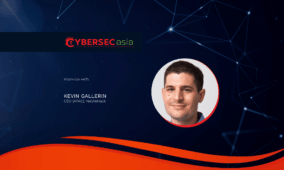The annual regional RSA conference drew international attendees and experts to strategize for today’s cybersecurity challenges.
Over the three-day RSA Conference APJ held in Singapore last week, the discussions focused on themes – like data governance and privacy, critical national infrastructure, artificial intelligence and blockchain – that are impacting the regional security landscape today.
“Asia continues to play a significant role in the global cybersecurity scene, and this year’s RSA Conference APJ has highlighted the region’s dynamic ecosystem, demonstrating how it continues be at the forefront of innovation,” said Linda Gray Martin, Senior Director & General Manager, RSA Conferences.
“Our distinguished guests, partners and attendees have truly exemplified this year’s theme, and represented the collective desire to do more, do better and work together to make this reality.”
Multi-pronged approach needed
In his opening keynote, Amrin Amin, Senior Parliamentary Secretary (SPS), Ministry of Home Affairs and Ministry of Health, emphasized the importance of a multi-pronged approach to tackle increasingly complex cyberthreats through better regional and international cooperation, better government capabilities, and better public awareness.
He said, “This is the 7th year that the Singapore Ministry of Home Affairs is supporting RSA Conference Asia Pacific & Japan in Singapore, which continues to be an important platform for all of us, policy makers, thought leaders, and cybersecurity professionals from around the region.”
SPS Amin also announced new Government initiatives including the new Home Team Science & Technology Agency which will be launched by the end of the year to strengthen digital security capabilities of Home Team, Singapore’s national training institute for government agencies.
Mobilizing Gen Z for cybersecurity
Elaborating on the importance of mobilizing the next generation for cybersecurity and public action, Kyla Guru, Chief Executive Officer of Bits N’ Bytes Cybersecurity Education, delivered a passionate opening day keynote. She addressed the crucial role of collaboration with the public and education sector to mobilize Generation Z for greater cybersecurity:
“Young people have a part in securing the future, because they are the future. As the biggest users of technology, spending 80% of their waking day online, they need to have a seat at the table and educating them through awareness, training and advocacy will be how we strengthen our human firewall.”
The deepfake challenge
The Conference concluded with The Hugh Thompson Show, an annual and ever-popular highlight.
With a focus on DeepFakes and the Human Zero Day this year, Dr Hugh Thompson, Program Committee Chair, RSA Conference, was joined by guests, Alexis Conran, Presenter and Broadcaster, Dr Saurabh Shintre, Senior Principal Researcher, Symantec, and Dr Vrizlynn Thing, Senior Vice President, Head of Cybersecurity Strategic Technology Centre, ST Engineering to discuss the phenomenon.
Deepfake – a blend of “deep learning” and “fake” – is a technique for human image synthesis based on artificial intelligence, to create fake videos, fake news and hoaxes.
“The ease of use and accessibility of such tools to create deepfakes is what makes it so dangerous,” Dr Saurabh explained.
“Yet, we are at a point where experts can identify deepfakes. It’s time that we take precautions by firstly being aware of the phenomenon, and secondly thinking deeper about the information we consume and receive – how it matters, what its objectives are and what are the consequences of trusting it,” said Dr Vrizlynn Thing.
Cybersecurity for the digital age
“Cybersecurity is a central challenge of our digital age,” said Diana Kelley, Cybersecurity Field CTO, Microsoft.
“RSA Conference 2019 in Asia provided me a platform to reinforce Microsoft’s commitment to cybersecurity and share insights with organizations in Asia Pacific on how they can get the most benefit from advances in the fields of AI and machine learning by focusing on the culture and diversity within their own cybersecurity teams.”
She explained: “Without diverse teams working on the ML models, the data and the threat models may end up automating bias or even the attack paths for criminals. AI is a crucial linchpin in cybersecurity; our teams need to be as diverse as the problems we are trying to solve.”
“The APJ region continues to accelerate its lead in cybersecurity innovation, and we are always excited to work with up-and-coming talent and startups here as they break into the industry,” said Linda Nguyen Schindler, Programme Head, ICE71.
“This year at RSA Conference 2019 APJ, ICE71 was able to do just that with our involvement at the RSAC Early Stage Expo (ESE), where we met and worked with emerging startups who are already addressing the latest security challenges. We definitely look to further these conversations and do even more with the startups in our region in the years ahead together with RSAC,” she added.
Leo Hwa Chiang, Director, Singapore Operations, IEEE, said: “With the threat landscape constantly evolving, it is imperative that our cybersecurity ecosystem continues evolving with it. RSA Conference 2019 APJ provided a great platform for connecting with various organizations, academia, industry experts and up-and-coming talent, and ideating around how we can use technology for good and stay a step ahead of bad actors.
“We look forward to our involvement at upcoming conferences, and to seeing new innovations emerge as we work towards strengthening connections in the region for a safer digital world.”
The conference saw participation from 16 keynoters and panelists. More than 110 speakers across 107 sessions, 75 sponsors and exhibitors, and 31 regional association partners. Pre-Conference programs included the Cyber Investigators’ Challenge, a Capture-the-Flag event co-organized by the Ministry of Home Affairs and Singapore Cybersecurity Consortium and DevSecOps Day. It brought together practitioners for a series of talks around securing application development.

















